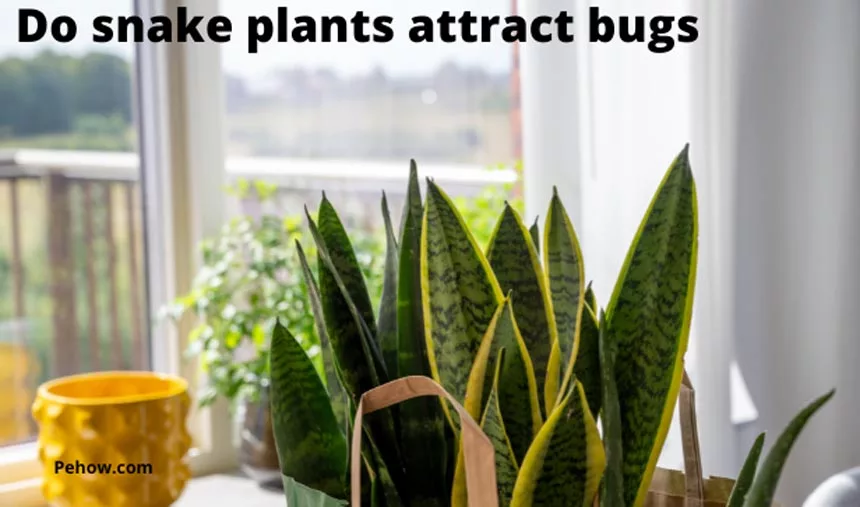I went to my friend’s house to see her new snake plant. I was amazed at how many bugs were crawling all over it! Are snake plants really that attractive to bugs?
The short answer is no, snake plants do not attract bugs. In fact, they are often used as a natural pest control measure. Snake plants release a chemical called sabinene which repels mosquitoes and other insects.
So if you’re looking for a plant that will keep your home bug-free, a snake plant is a good choice.
In this blog post, we’ll take a closer look at the science behind why snake plants repel bugs. We’ll also discuss some of the other benefits of owning a snake plant.
Why snake plants attract bugs
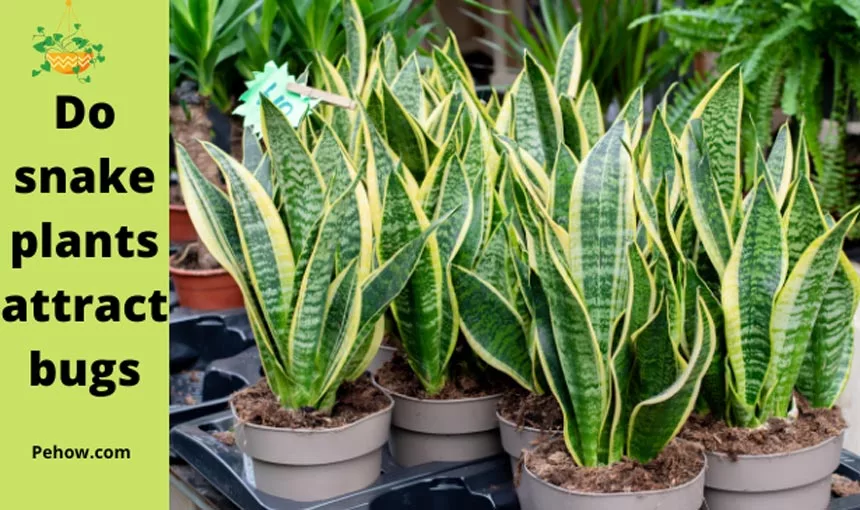
The reason snake plants attract bugs is because they produce a sweet sap that draws in insects. The sap is high in sugars and other nutrients that bugs find irresistible. The plants also release a fragrance that further attracts bugs.
While the sap may not harm humans, it can be harmful to some bugs. For example, the sap can kill honey bees if they consume too much of it.
Some people also believe that snake plants attract bugs because they are a source of food for them. However, there is no scientific evidence to support this claim.
The science behind why snake plants attract bugs
Some plants attract bugs. Scientists have studied this and found out why some plants do this. They’ve determined that it’s because of the plants’ scents. The chemicals in the plants’ scents attract bugs.
Some people believe that snake plants (Sansevieria trifasciata) are one of these types of plants. They think that snake plants attract bugs because of their scent. But is this true?
The short answer is: we don’t know. There hasn’t been any scientific research on this topic. So, we can’t say for sure whether or not snake plants attract bugs.
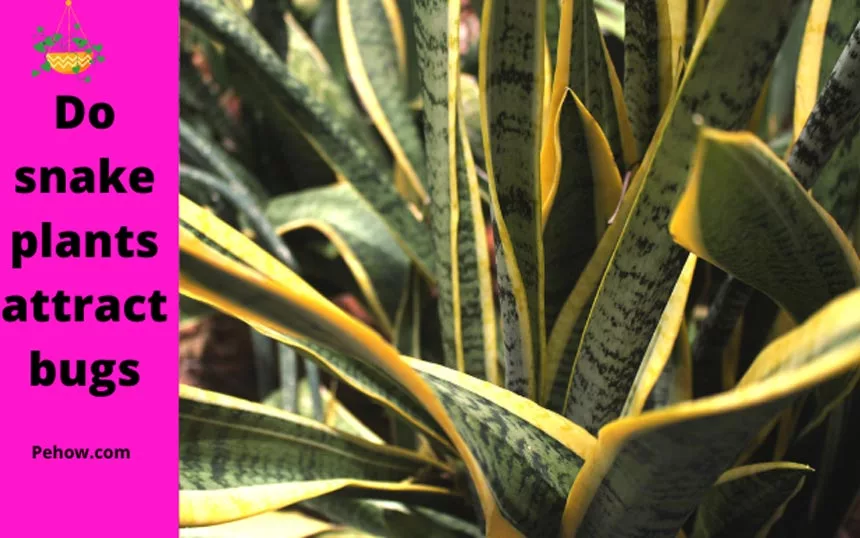
However, there are a few things that we do know about snake plants and bugs. For example, we know that snakes are often found near snake plants. This is because snakes like to eat the bugs that are attracted to the plant.
We also know that some people believe that snake plants help to keep bugs away from other plants. This is because the bugs are attracted to the snake plant, and not to the other plants.
So, while we can’t say for sure whether or not snake plants attract bugs, there are some things that suggest that they might. If you’re worried about bugs in your home, you may want to consider getting a snake plant.
How to get rid of the bugs attracted to your snake plant
Do snake plants attract bugs? Some people say that when you have a snake plant, bugs come. But do not worry! You can get rid of the bugs by doing this:
-First, try to identify the type of bug that is attracted to your snake plant.
-Once you know what kind of bugs are attracted to your snake plant, you can take measures to get rid of them.
-Some common methods to get rid of bugs include: using a pesticide, setting up a traps, or using a natural repellent.
-If you do not want to use any chemicals, then you can try to get rid of the bugs by using a physical barrier such as diatomaceous earth or neem oil.
-You can also try to change the environment around your snake plant so that the bugs are not attracted to it.
-Finally, you can also try to attract other predators of the bugs to your home so that they can eat the bugs for you!
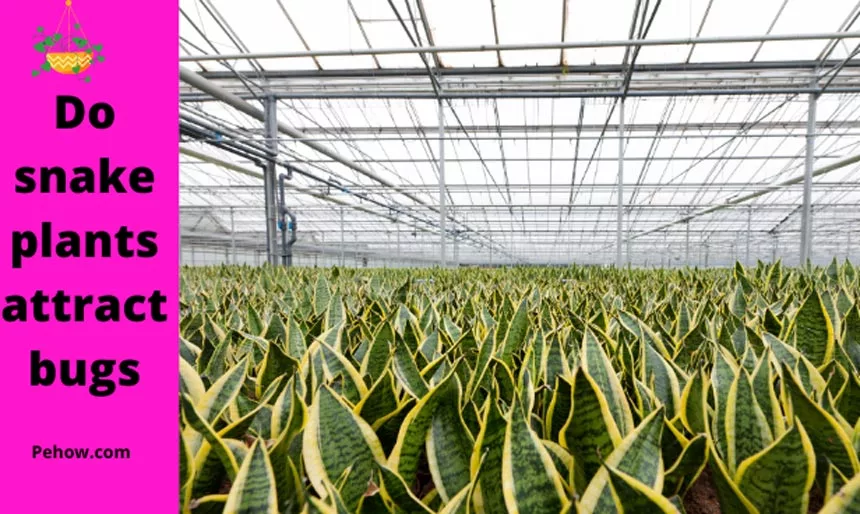
Alternatives to getting rid of the bugs attracted to your snake plant
Here are some options to get rid of bugs that are attracted to your snake plant:
1. Use a natural insecticide
There are a few different natural insecticides that you can use:
- neem oil
- citrus oil
- peppermint oil
- lavender oil
Just add a few drops of any of these oils to a spray bottle filled with water and spritz your plant with it. Be sure to do this in the evening though, as the oils can make the leaves of your plant more susceptible to burning in direct sunlight.
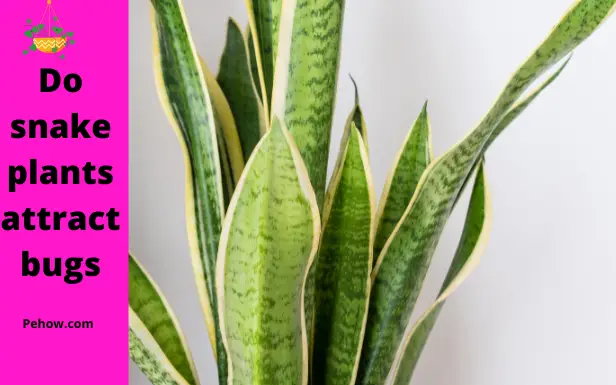
2. Repot your plant into a different potting mix
If you’re noticing an abundance of bugs around your snake plant, there may be a reason why. Snake plants are notorious for attracting pests, so if you’re looking to get rid of these unwanted guests, you may need to try repotting your plant into a different potting mix.
3. Trim off any affected leaves
Snake plants do not attract bugs, but if you do find any pests on your plant, you can trim off any affected leaves. If the infestation is severe, you may need to treat your plant with an insecticide. However, it is always best to try and solve the problem without resorting to chemicals.
4. Move your plant to a different location
When it comes to getting rid of pesky bugs, snake plants may do more harm than good. If your plant is attracting unwanted visitors, try moving it to a different spot in your home. A new location may do the trick in keeping bugs away.
5. Give your plant more light
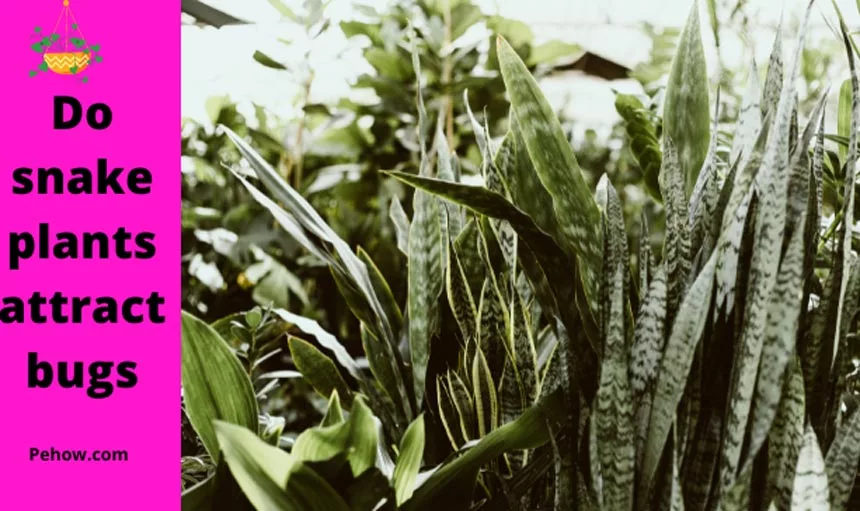
If you want to keep your snake plant bug free, you may need to give it more light. According to a study by the University of Florida, bug populations increased when plants were placed in shadier areas. If you’re noticing an increase in bugs around your snake plant, try moving it to a brighter spot in your home.
6. Water your plant less often
Water your plant less often to discourage bugs from congregating. If you do water your snake plant, do so in the morning so the leaves have time to dry out during the day. This will help prevent fungus and bacteria from growing on the plant.
7. Add a humidity tray to your plant’s environment
There are a few things you can do to help your snake plant thrive, such as adding a humidity tray to its environment. If you live in an area with low humidity, this will help to keep your plant’s leaves from drying out and turning brown.
You can also mist your plant regularly to help increase the humidity around it. Just be sure not to overwater it, as too much moisture can lead to root rot.
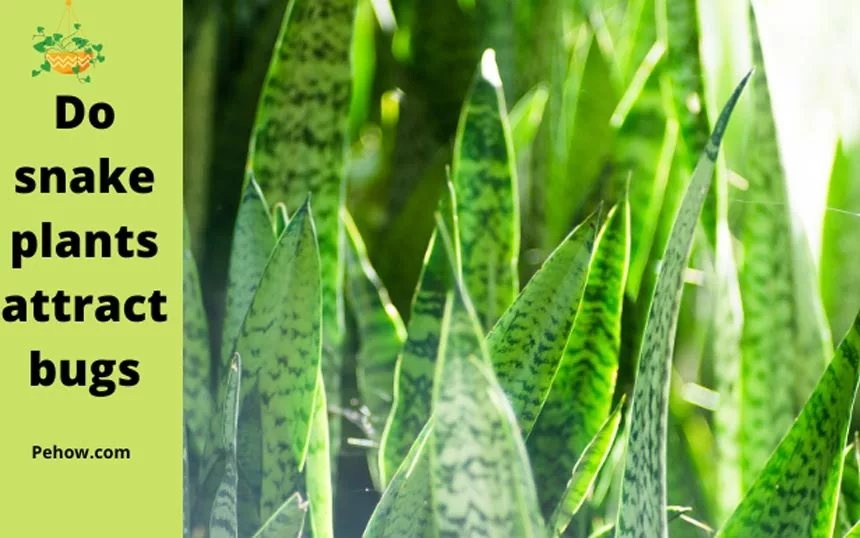
8. Get rid of other plants that may be attracting the bugs
- Remove any other plants that may be attracting the bugs
- Replace them with plants that do not attract bugs
- The goal is to get rid of the bugs and keep them away from your snake plant
9. Inspect your plant regularly for pests and treat them promptly if found
One of the benefits of having a snake plant is that they are relatively low-maintenance. However, this does not mean that you can neglect your plant and do nothing. It is important to inspect your plant regularly for pests and treat them promptly if found.
10. Try a different type of snake plant
There are a few different types of snake plants to choose from, so if the first one you try doesn’t seem to be working for you, don’t worry – there are plenty of other options. Some of the most popular types of snake plants include the following:
Sansevieria trifasciata: This type of snake plant is also known as the “mother-in-law’s tongue” or the “viper’s bowstring hemp.” It is distinguished by its long, sword-like leaves.
Sansevieria cylindrica: This type of snake plant is also known as the “cylindrical snake plant.” It is distinguished by its round, tube-like leaves.
Sansevieria trifasciata ‘Hahnii’: This type of snake plant is also known as the “bird’s nest snake plant.” It is distinguished by its small, compact leaves.
If you’re not sure which type of snake plant to choose, do some research to see which one would be best for your needs.
Do snake plants cause allergies?
Some people believe that snake plants might cause allergies, but there is little scientific evidence to support this claim.
In fact, one study published in the journal PLOS One found that exposure to snake plant pollen did not cause any allergic reactions in test subjects.
Therefore, if you are concerned about potential allergies, it is best to speak with your doctor or an allergist before adding a snake plant to your home.
Where should I keep my snake plant at home?
The answer to that question is, “It depends.” Some people recommend that you keep snake plants near a window so they can get sunlight, while others say you should keep them in a place where they won’t get too much sunlight.
Snake plants do attract bugs, so if you’re worried about bugs invading your home, you may want to keep your snake plant in a place where bugs are less likely to be a problem.
Can snake plant be kept in bedroom?
yes, the snake plant can be kept in the bedroom. It is known to produce oxygen at night, which can help improve sleep quality. Additionally, it is effective at filtering out harmful toxins from the air, such as formaldehyde and carbon monoxide.
How long does a snake plant live?
The snake plant can live for many years with proper care. They are easy to care for, and only require moderate light and water. With proper care, they can even bloom flowers.
Final Thoughts
The snake plant is a popular choice for many reasons. Not only is it low-maintenance, but it also has a number of benefits, such as improving air quality and helping to filter out toxins.
I’m at my friend’s house again and she asked me to do a post on do snake plants attract bugs and I was like doh! But then I realized that I actually don’t really know if they do or not. So, I did some research and found out that there is actually no scientific evidence to support the claim that they do.
Are you in your home do you have a snake plant? Have you ever noticed any bugs around it? Let us know in the comments below.


